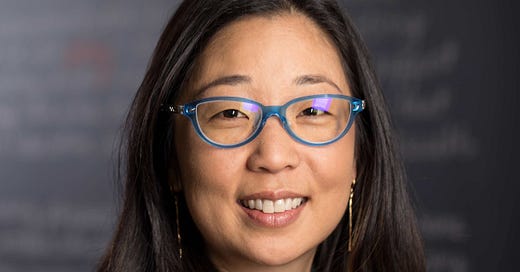The following is an excerpt from a piece by Marjorie Malpiede in LearningWell Magazine titled, “‘Living a Life Worth Working’: An expert on the future of work sees human connection as the critical ingredient”
"When I talk about a 'life worth working,' it's not that we all have to suddenly drop what we're doing and pursue our passions. It's about how we actually find moments of real authentic encounters, even in what can sometimes feel like mundane work."
Like today's future workforce, Dr. Michelle R. Weise is bound to hold numerous roles in her already accomplished career. The former college professor turned ed tech executive worked at the Clayton Christensen Institute for Disruptive Innovation before becoming the chief innovation officer of Strada Education Network's Institute for the Future of Work.
Weise is also the author of Long Life Learning: Preparing for Jobs That Don't Even Exist Yet. In it, she argues for reimagining how we train learners and earners for the prolonged careers that come with longevity, though not necessarily in ways one might think. In this interview for LearningWell, Weise talks about what little structure exists for us to gain the knowledge we will continuously need. She advocates for changes within post-secondary education and the workforce that will help align one's inner and outer lives and lead us to recognize our shared humanity in an increasingly isolated world.
LW: Your book suggests there are numerous jobs we might have in our lives. What has your own work life been like in that regard?
Weise: When I look back, I can see the stepping stones, but I didn't really plan any of this out. It was a lot of pivoting, learning new skills, and then taking that newly acquired knowledge and launching to the next thing. My first job was as a tenure-track English professor. That was supposed to be my job for life, but I realized early on that it didn't feel like the right calling for me. My first job outside of academia was for an ed tech startup that was helping service members transition out of the military into civilian careers. We were creating tools and services to help them translate their skills into the language of the labor market. Even though I didn't know it back then, that focus on learners' translation of their own skill sets has been a resonant theme throughout all of my work.
Click here for the full interview.




